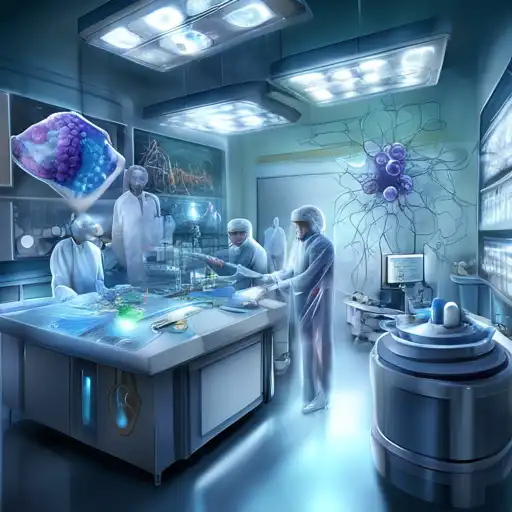Introduction to Nanotechnology in Medicine
Nanotechnology, the science of manipulating matter at the atomic and molecular scale, is set to revolutionize the medical field. With its potential to diagnose, treat, and prevent diseases at a cellular level, nanotechnology in medicine is indeed the next big thing. This article explores the groundbreaking advancements and the future prospects of nanotechnology in healthcare.
The Current State of Nanotechnology in Medicine
Today, nanotechnology is being used in various medical applications, from drug delivery systems to diagnostic tools. Nanoparticles can target specific cells, such as cancer cells, delivering drugs directly to the affected area without harming healthy tissues. This precision reduces side effects and improves treatment efficacy.
Drug Delivery Systems
One of the most promising applications of nanotechnology is in the development of advanced drug delivery systems. These systems utilize nanoparticles to transport drugs to specific parts of the body, ensuring that the medication is released exactly where it's needed. This method not only enhances the effectiveness of the drug but also minimizes potential side effects.
Diagnostic Tools
Nanotechnology is also transforming diagnostic procedures. Nanosensors can detect diseases at their earliest stages, often before symptoms appear. This early detection is crucial for conditions like cancer, where early intervention can significantly improve outcomes.
Future Prospects of Nanotechnology in Medicine
The future of nanotechnology in medicine is boundless. Researchers are exploring its use in regenerative medicine, including tissue engineering and organ repair. Nanotechnology could one day enable the regeneration of damaged tissues or even the creation of artificial organs, addressing the critical shortage of organ donors.
Regenerative Medicine
Nanotechnology holds the key to breakthroughs in regenerative medicine. By manipulating cells at the nanoscale, scientists can potentially repair or replace damaged tissues and organs. This could revolutionize treatments for conditions like heart disease, diabetes, and spinal cord injuries.
Personalized Medicine
Another exciting prospect is the role of nanotechnology in personalized medicine. By analyzing a patient's genetic makeup at the nanoscale, treatments can be tailored to the individual's specific needs, improving outcomes and reducing the risk of adverse reactions.
Challenges and Ethical Considerations
Despite its potential, the integration of nanotechnology into medicine faces several challenges. These include technical hurdles, regulatory issues, and ethical concerns. Ensuring the safety and efficacy of nanotechnology-based treatments is paramount, as is addressing privacy concerns related to genetic information.
Technical and Regulatory Hurdles
The development of nanotechnology-based medical treatments requires overcoming significant technical challenges. Additionally, regulatory frameworks must evolve to keep pace with these advancements, ensuring that new treatments are both safe and effective.
Ethical Concerns
The use of nanotechnology in medicine also raises ethical questions, particularly regarding privacy and the potential for unequal access to these advanced treatments. It's essential to address these concerns to ensure that the benefits of nanotechnology are accessible to all.
Conclusion
Nanotechnology in medicine represents a frontier of endless possibilities. From targeted drug delivery to regenerative medicine, its applications could transform healthcare as we know it. While challenges remain, the potential benefits of nanotechnology in medicine are too significant to ignore. As research progresses, we may soon witness a new era in medical treatment, where diseases are treated at their root, with precision and minimal side effects.
